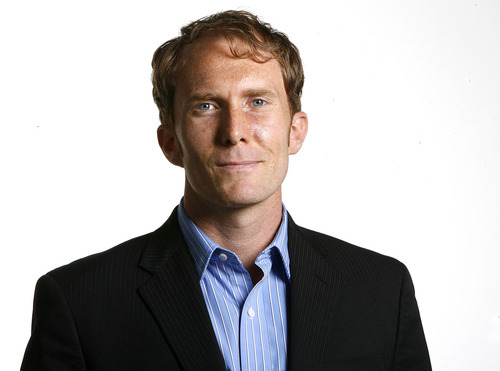This is an archived article that was published on sltrib.com in 2011, and information in the article may be outdated. It is provided only for personal research purposes and may not be reprinted.
It's easy to take shots at NBA commissioner David Stern. Even easier to fire away at league owners, many of whom are largely invisible to the paying public; some of whom have self-created images as occasional buffoons who travel the world via yacht or play bad 12-bar blues to bowling alley patrons.
Give powerful men hundreds of millions of dollars and the keys to a toy kingdom, and some will certainly turn into unmissable piñatas.
But here's the thing, Jazz fans. While owners and players slug it out after news conferences and through text messages, and plausibly serious threats to cancel Christmas are followed by gun-to-your-head references, the billionaires are actually your best friends. Moreover, they're looking out for you. The millionaires? Not so much.
Larry Bird rights, the mid-level exception, a hard/soft salary cap and the split of basketball-related income (BRI) are fairly complicated issues that only a collective bargaining agreement (CBA) aficionado could love. But parity? Real competition? A fair fighting chance? Even playground kids buy into that.
The NFL has parity. MLB sort of has it. The NBA does not. And while owners are clearly canceling regular-season games because they want a fatter BRI split, they're also allowing Stern to mouth off to the masses because the commish is speaking to their hearts.
Stern has been doing this a long, long time. He eats CBAs for breakfast. He's not some rapidly aging loon walking around Christmas tree lots with a sharp axe, looking to send Santa back to the North Pole. Stern means what he says. And when he takes to the airwaves to repeatedly say that an attempt to introduce parity to The Association is one of the ventricles pumping blood into owners' ongoing efforts to reset a broken financial and competitive system, the sometimes cranky Stern deserves a little credit.
"Fans in [small] markets think the system is stacked against us," Stern said Thursday during an interview with NBA TV's David Aldridge. "And it's not a good thing because what we are selling here is competition. And at the end of the day, we think our teams just want to be competitive. … But there is an increasing sense that 'glamorous' cities have an edge, and I guess it's always been that way."
Hear that, Salt Lake City?
Derrick Favors is not the key to the Jazz's immediate future. Neither is Gordon Hayward, Enes Kanter, Alec Burks or Utah general manager Kevin O'Connor.
In one single CBA, the NBA can attempt to fix what was shattered when LeBron James fled to Miami and Carmelo Anthony turned a ridiculous hostage situation in Denver into new digs in The Big Apple.
Will it work? We'll see. Revenue sharing must improve. Some small-market teams (ahem, Minnesota) must make better decisions.
But the owners have made it this far by sticking to their guns and remembering that everyone lost last season when messy Milwaukee played sorry Sacramento. If the billionaires can stand united for the long haul, maybe the NBA can actually become competitive again. And maybe, just maybe, the Jazz can draft an annual All-Star and keep him in uniform for more than 5 1/2 years.
bsmith@sltrib.comTwitter: @tribjazzfacebook.com/tribjazz



